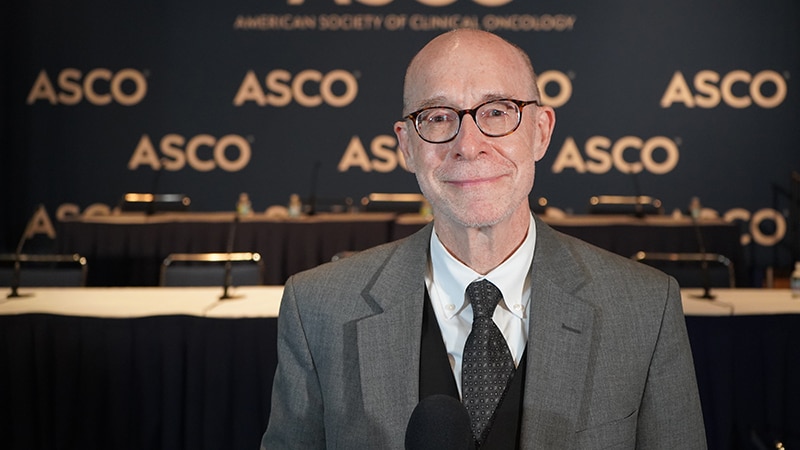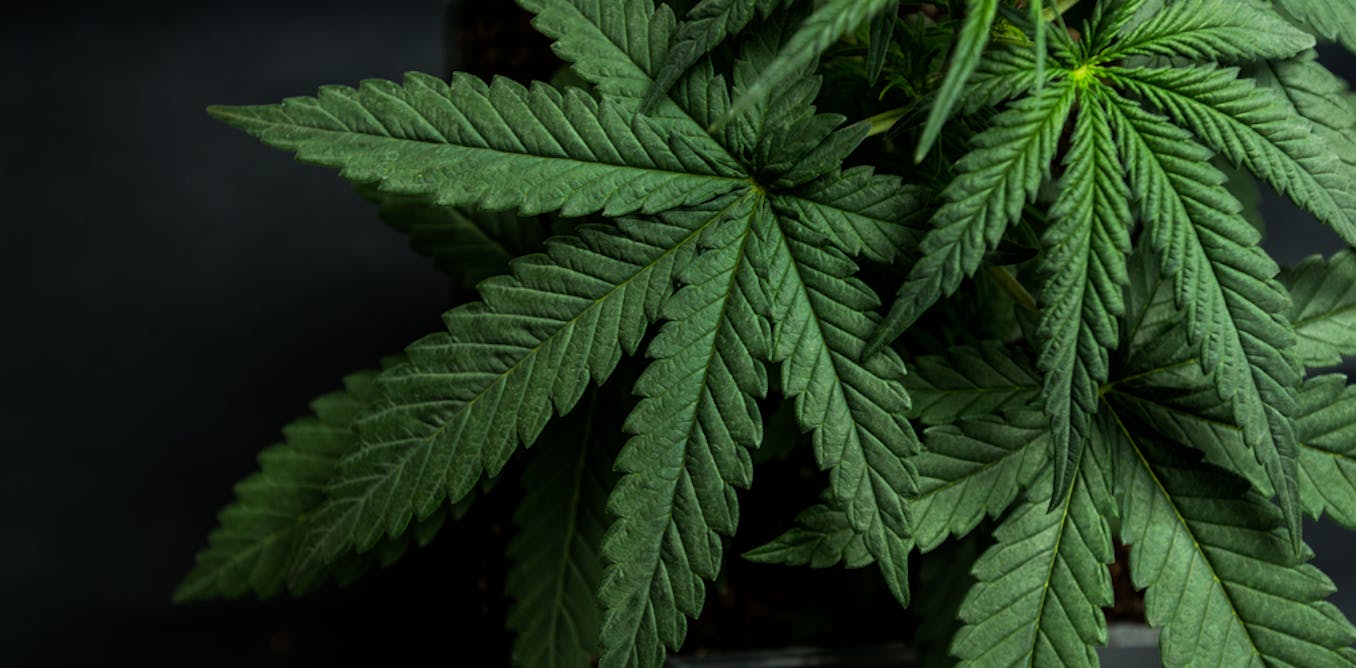Dr. Mellar P. Davis from the Geisinger Medical Center explains that while cannabis might be beneficial in treating the side effects of cancer treatment, more research needs to be done to determine whether cannabis stops or encourages tumor growth.
Does Cannabis Have a Role in Cancer Management?
Mellar P. Davis, MD
June 03, 2019
I'm Mellar Davis from the Geisinger Medical Center. There were four of us who led a packed session about cannabis here at ASCO. We looked at four subjects: the interaction of cannabis with cancer; the symptom support of cannabis; the drug interactions or potential risks that occur in elderly patients; and also the legal and ethical use of cannabis.
In terms of interactions, there is evidence that cannabis can stimulate cancer; there is also evidence that it's actually oncosuppressive. There are multiple mechanisms by which it can be oncosuppressive, but there is very little clinical data that helps us determine whether cannabis influences the course of cancer. Only anecdotal evidence and small trials are available.
However, about 26% of patients who are using cannabis for their cancer believe that they are treating their cancer. So it's very important that clinicians understand that their patients are using cannabis, particularly if their cancer is taking an unusual course.
As far as symptoms are concerned, most patients take cannabis for pain or nausea. They also will take it for insomnia, for the euphoric effect that they may get, and for appetite stimulation; and we also use it for dysgeusia, which is the distaste that frequently occurs with chemotherapy.
So there can be multiple benefits. The important thing in treating symptoms is to start at low doses of THC and cannabidiol, and then slowly titrate the dose to avoid side effects.
Certain symptoms such as pain have a ceiling effect, so using more than 30 g of THC probably won't improve the pain if the patient hasn't responded.
Most cancer patients are elderly, over the age of 65, and many are on multiple drugs. The cannabinoids do interact with mixed-function oxidases.
THC stimulates CYP3A4 and cannabidiol inhibits CYP3A4 so the combination may be a balance. But if you are using THC, you may increase the clearance of other drugs that are important to the patient for symptom management. And if you're using CBD, or if the patient is taking a high amount of cannabidiol, it may interfere with drug clearances, including chemotherapy agents.
Finally, the medicolegal aspect of using cannabis is another subject that perplexes oncologists and physicians in general. The federal government has it as a Schedule I drug, having no effect and having a high risk for addiction, whereas states have legalized it for medical purposes—and physicians are caught in between. And the data that we have for symptom support are modest at best.
It's a difficult era to be in. Cannabis is really a sociopolitical drug at the current time. There is interest in studying it, which I think is important. But there are no guidelines that direct physicians on how or when to use it.
Education is really a very important part of the use of cannabis, but most of the education patients get is questionable. It may be from Google [searches], it may be from family, or it may be from friends. But they may in fact make decisions that would hurt them, or they start at very high doses of cannabis and get into trouble, particularly among the elderly, where falls and interactions with alcohol or opioids are a very potential risk.
I think the important thing that our session addressed is the gaps in what we know now. I think it's important for societies such as ASCO and the National Cancer Institute to develop guidelines or at least policy statements in regard to the use of cannabis, to start the conversation nationally and to develop research studies.
There are more than 80-100 different cannabinoids in cannabis, and there may in fact be a rich source of benefit both in treating patients with cancer and treating symptoms in patients with cancer that would be important to investigate in the future.
Thank you.











